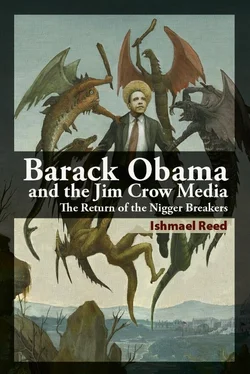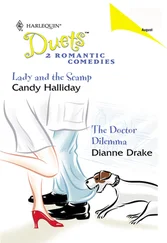Though millions of people of different backgrounds, races and ethnic groups all over the world applauded, they view him still as the black president. Some might find this limiting. When they interviewed Obamakins in the crowd of two million, they focused on the views of blacks, (but in studio he was evaluated by mostly white panels and the right-wing black help). They won’t give the guy a break.
When he gave speeches that were soaring in oratory and rhetoric they said that he was trying to be a rock star or, as Mrs. Clinton said, all he has is a speech. Then when he delivers a sober low-key recitation — a list of the crises faced by Americans — Jeffrey Toobin, who got his job as TV commentator for his comment that blacks shouldn’t be “patted on the head” because they supported the decision of the O.J. criminal trial, complained that the speech didn’t include flights of oratory.
Other establishment elements are using his election to suggest that the fight for racial equality has been won. The New Yorker had a cartoon suggesting that blacks were “Free At Last.” They had a portrait of Martin Luther King, Jr. above an angry Bush leaving town. The Bush administration had a higher percentage of black contributors than The New Yorker, Rolling Stone, The Nation and other hip publications that supported Obama. In October 2009, Eric Alterman of The Nation commented on the decline of white American power. Not to worry. Whites still have The Nation where, like Pacifica, ninety percent of the commentary is by white males and an equal percentage of books reviewed by white male authors.
That cartoon in The New Yorker reminded me of what the great Chester Himes once said. He said that if you made a black man a general in the army you could do anything you wanted with black enlistees.
If, as The New Yorker and other publications have announced, we’ve reached King’s mountain top, I guess I’m a lousy mountain climber. I hear all of the shouting and cheering at the top as the Obamakins survey the Promised Land, but I’m down here struggling with these rocks. If I were a nineteenth-century cartoonist like Thomas Nast, I would label the rocks: discrimination against blacks and Hispanics by the mortgage industry; racial disparities in the health industry; racism in the criminal justice system, including prosecutorial and police misconduct; the flooding of the inner cities with illegal weapons.
And while the media are heralding the election of Barack Obama as signaling the advent of a new post-race period, their own profession has seen a virtual purge of minority journalists, eight hundred and forty lost their jobs during the year of his campaigning. Moreover, if the visuals they chose during inauguration are any indication, Barack Obama is the post-race president whom they won’t allow to be post-race.
Since then, millionaires and billionaires who own the media have used their talking heads to pounce upon any of Obama’s plans that are injurious to their interests. Already AOL news has shifted from presenting its daily black athlete in trouble to taking down Obama and while a first-rate writer and journalist like Amy Alexander is having trouble finding a place to place her copy, AOL employs the imported intellectual mercenary Dinesh D’Souza to write about black culture and politics which is like it would have been had Hollywood hired Strom Thurmond to write the screenplay for The Martin Luther King Story . MTV’s Youth Ball demonstrated that if the corporate media doesn’t repair its relying on the ancient carnie act, The Wedge , to raise ratings they will go the way of the Republican Party. Tennessee identified some of the MTV performers for an old school person like me. She and I get into it about which period is the best. I say the 1940s, she says now and maybe the 1960s. When I saw the enthusiasm of these young people, black, white, brown and yellow, helping to build houses, repair schools and “all fired up and ready to go,” I, who have been critical of some of Obama’s cynical political moves, after all he’s a politician, thought that he might just bring it off his “Yes, We Can.”
I was wrong about Obama’s being elected. I thought that Clinton would win. I voted for Cynthia McKinney because her political views are more compatible with mine. (One of Obama’s accomplishments was that up to now black men have been seen as evil; now maybe we’re the lesser of two evils?)
But I wasn’t ready for the Obama phenomenon that swept over the land like the legendary Big Wave that surfers talk about. I should have known that something different was happening when I heard a black man call into C-Span’s Washington Journal . He said, “When I hear Obama speak, I feel like just getting up and doing something!”
Finally, one hopes that no harm will come to this young president. Already he has challenged the United States intelligence community. The last president who did that was JFK.
(The National Association of Black Journalists jointly sponsored poll of four hundred and sixty-two people attending the inauguration in Washington on Tuesday found that most said their primary source for news was cable television.)
How Henry Louis Gates Got Ordained as the Nation’s “Leading Black Intellectual”
Post-Race Scholar Yells Racism12
Now that Henry Louis Gates, Jr. has gotten a tiny taste of what “the underclass” undergo each day, do you think that he will go easier on them? Lighten up on the tough-love lectures? Even during his encounter with the police, he was given some slack. If a black man in an inner city neighborhood had hesitated to identify himself, or given the police some lip, the police would have called SWAT. When Oscar Grant, an apprentice butcher, talked back to a Bay Area Rapid Transit policeman in Oakland, he was shot!
Given the position that Gates has pronounced since the late eighties, if I had been the arresting officer and post-race spokesperson Gates accused me of racism, I would have given him a sample of his own medicine. I would have replied that “race is a social construct”—the line that he and his friends have been pushing over the last couple of decades.
After this experience, will Gates stop attributing the problems of those inner city dwellers to the behavior of “thirty-five-year-old grandmothers living in the projects?” (Gates says that when he became a tough lover he was following the example of his mentor, Nobel Laureate Wole Soyinka, as though his and Soyinka’s situations were the same. As a result of Soyinka’s criticisms of a Nigerian dictator, he was jailed and his life constantly threatened.)
Prior to the late eighties, Gates’ tough-love exhortations were aimed at racism in the halls of academe, but then he signed on to downtown feminist reasoning that racism was a black male problem. Karen Durbin, who hired him to write for The Village Voice , takes credit for inventing him as a “public intellectual.” He was then assigned by Rebecca Penny Sinkler, former editor of The New York Times Book Review , to do a snuff job on black male writers. In an extraordinary review, he seemed to conclude that black women writers were good, not because of their merit, but because black male writers were bad. This was a response to an article by Mel Watkins, a former Book Review editor, who on his way out warned of a growing trend that was exciting the publishers’ cash registers. Books that I would describe as high Harlequin romances, melodramas in which saintly women were besieged by cruel black male oppressors, the kind of image of the brothers promoted by Confederate novelists Thomas Nelson Page and Thomas Dixon.
Gates dismissed a number of black writers as misogynists, including me, whom he smeared throughout the United States and Europe, but when Bill Clinton was caught exploiting a young woman, sexually, he told the Times that he would “go to the wall for this president.” Feminists like Gloria Steinem defended the president as well, even though for years they’d been writing about women as victims of male chauvinists with power, the kind of guys who used to bankroll Ms. magazine. Houston Baker, Jr. criticizes Gates for defending the misogynist lyrics of Two Live Crew.
Читать дальше












